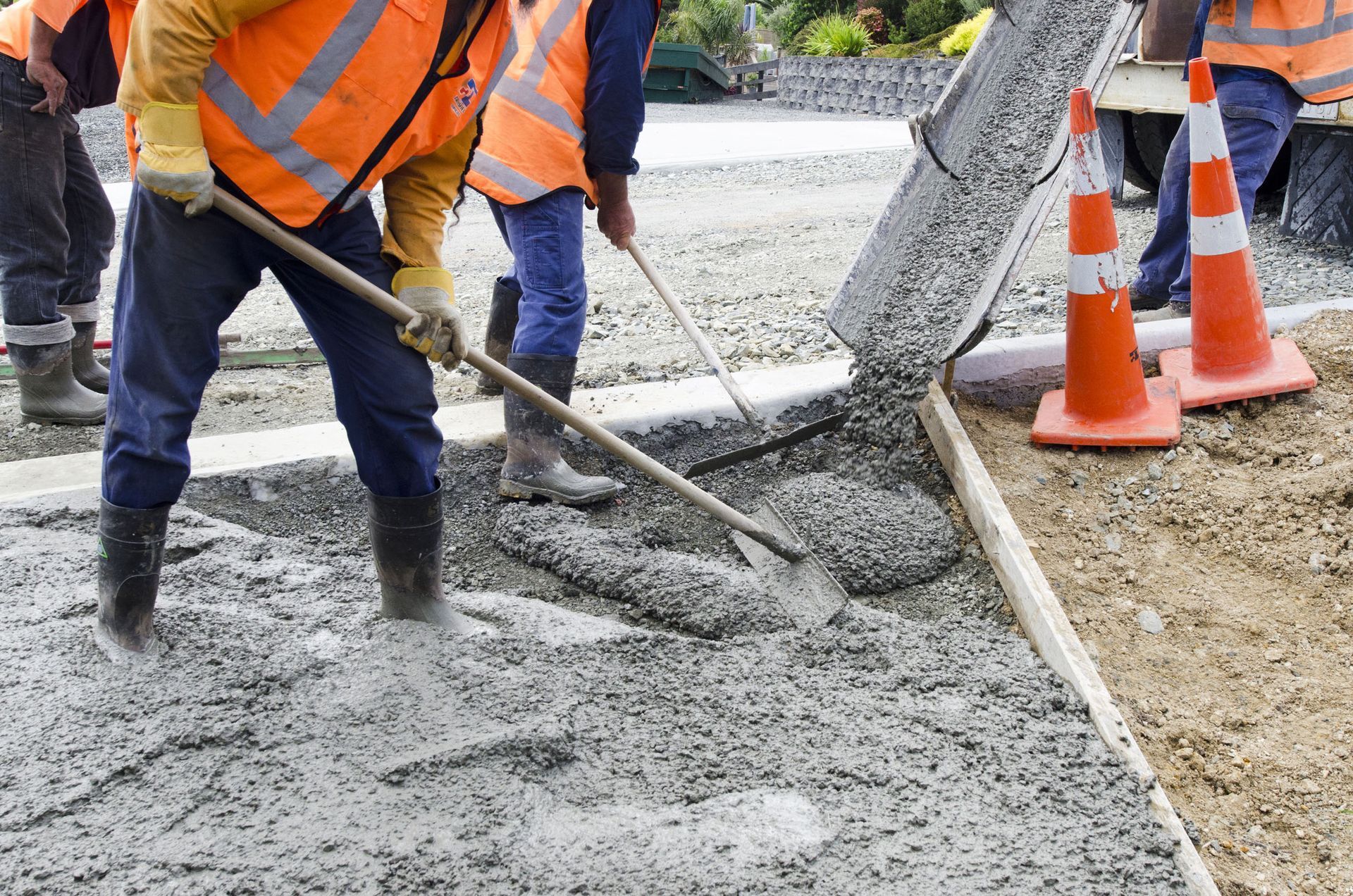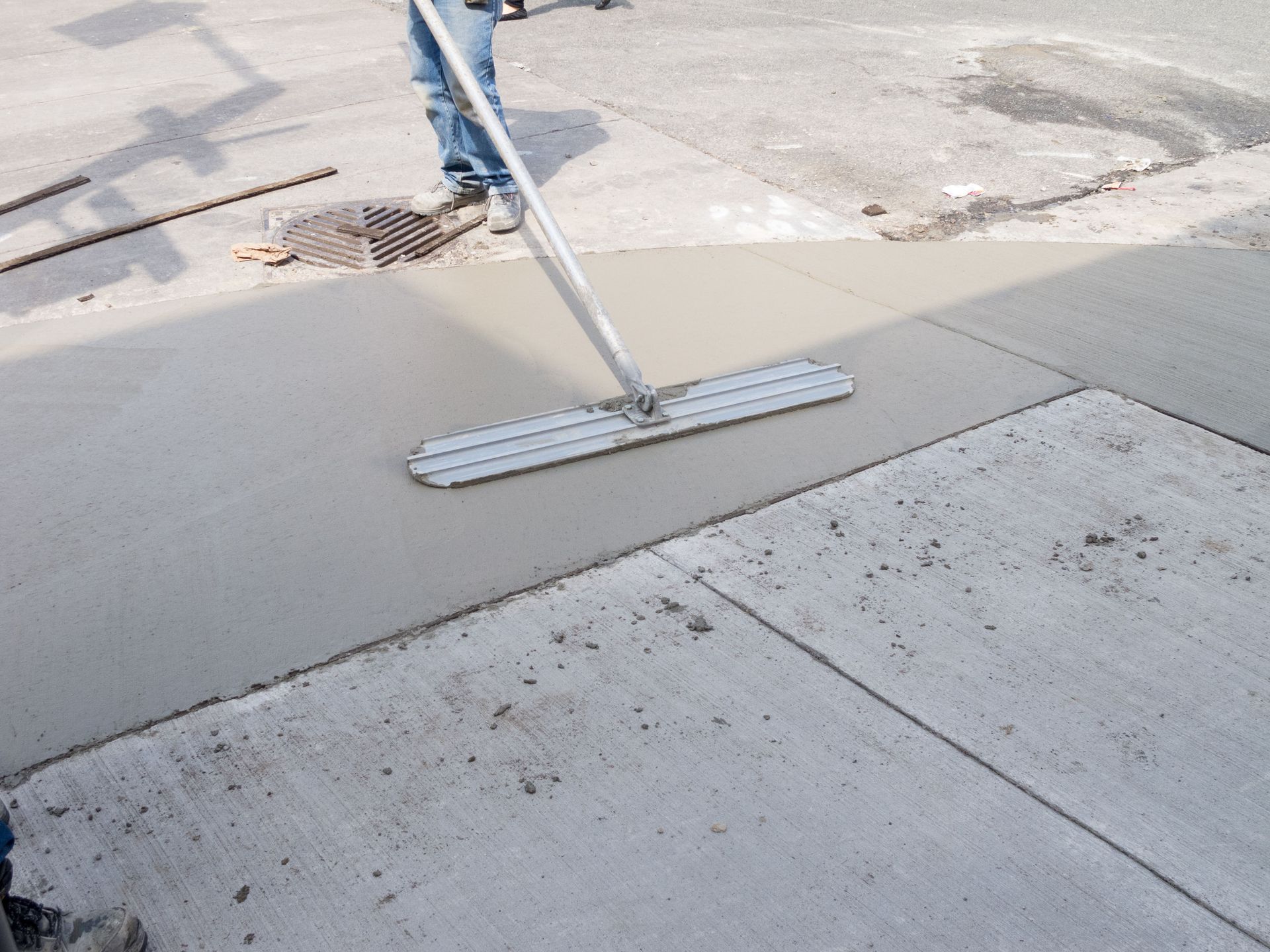13 Tips from a Driveway Contractor
Discover valuable insights and professional advice from an experienced driveway contractor. Whether you're considering a new driveway or maintaining the one you already have, these tips will guide you to a durable and aesthetically pleasing outcome.
1. Understanding Your Climate
Choosing the right material for your driveway starts with understanding the climate in which you live. In colder climates, materials that can withstand freeze-thaw cycles, such as concrete, are ideal. Conversely, asphalt might be preferable in warmer climates, as it can flex slightly under heat without cracking. Climate considerations are critical because they can greatly affect the longevity of the driveway. Materials that perform well in your climate can save you money on repairs and replacements.
2. Asphalt vs. Concrete
Asphalt and concrete are two of the most popular materials for driveways, each with its own advantages. Asphalt offers a more cost-effective solution and provides a smooth finish that's easy to drive on. Concrete, however, offers greater durability and strength, but it is typically more expensive to install. The decision between asphalt and concrete often comes down to cost, aesthetic preference, and long-term durability. For homeowners prioritizing longevity, concrete might be the better option despite its upfront cost. Did you know? According to Discovery, after the Roman Empire fell around 500 AD, concrete use died off in favor of wood and stone until the middle of the eighteenth century.
3. Exploring Paver Options
Pavers provide a distinctive and attractive option for driveways, offering various design possibilities. Available in different materials, such as stone, brick, and concrete, pavers allow homeowners to create unique patterns. This flexibility can enhance the curb appeal of a property while maintaining the functional requirements of a driveway. While pavers can be more expensive than asphalt or concrete, they offer the advantage of easier repair. Damaged pavers can be replaced individually, leaving the rest of the driveway intact and reducing overall maintenance costs.
4. Considering Costs
Budget is an essential factor when selecting driveway materials, as different options vary widely in price. Asphalt is generally the most affordable choice for residential driveways, followed by gravel. Concrete is more expensive but offers greater durability and longevity. Pavers are typically the most costly option due to installation complexity and materials. Homeowners should weigh upfront costs against potential maintenance expenses to choose a material that aligns with both their budget and long-term property goals. If in doubt, ask a driveway contractor for their opinion.
5. Ensuring Long-Term Durability
Durability is key to ensuring your driveway withstands wear and tear over time. Concrete driveways, with proper maintenance, can last 30 years or more, proving to be a robust choice. In our experience, asphalt driveways have a lifespan of 20 years on average, with regular sealing and repairs extending longevity. The durability of your driveway can significantly impact property value and aesthetic appeal. With strategic planning and material selection, long-term performance and aesthetic value can be maximized.
6. Preventing Water Accumulation
A key function of an effective driveway is to prevent water from pooling on its surface, which can lead to damage. Properly installed drainage systems ensure that rainwater and melting snow are effectively channeled away from the driveway. Without these systems, water can seep beneath the surface, causing cracks and weakening the structural integrity. Drainage is critical in climates with heavy rainfall or snow, as standing water can freeze and expand, exacerbating damage. Investing in proper drainage solutions can enhance the durability and safety of your driveway.
7. Using Sloping Techniques
Sloping techniques are employed by a driveway contractor to direct water away from the driveway surface. This might involve creating a gentle slope with the driveway itself or installing swales alongside it. The angle must be sufficient to allow water to flow but gentle enough to prevent slipping hazards. Implementing these techniques during construction is crucial to avoid costly renovations in the future. A well-sloped driveway not only enhances drainage but also contributes to the property's overall aesthetic.
8. Utilizing Drains and Gutters
Incorporating drains and gutters into driveway design is another effective way to manage water. Channel drains, often installed at the driveway's edge, capture surface water and direct it to a safe discharge point. Gutters can also be integrated to handle heavy runoff from adjacent roofs or landscaping. These features work in conjunction with the driveway's slope to prevent water-related damage efficiently. A combination of strategic drainage systems can ensure your driveway remains functional and damage-free for years to come.
9. Recognizing the Impact of Drainage on Driveway Lifespan
Proper drainage significantly influences the lifespan of a driveway, just ask any driveway contractor. By preventing water accumulation, the structural integrity of the driveway is maintained, reducing the likelihood of cracks and upheaval. Effective drainage helps avoid the deterioration caused by freeze-thaw cycles, especially in colder climates. This not only delays the need for repairs but also preserves the driveway's aesthetic appeal. Investing in drainage systems is a cost-effective strategy to maximize the lifespan of your driveway.
10. Practicing Effective Site Clearing
Before constructing a driveway, the site needs to be thoroughly cleared of debris, vegetation, and existing structures. Clearing the area ensures a clean slate for construction and prevents organic material from compromising the driveway's foundation. A professional site clearing includes the removal of tree roots, which can cause future upheaval if left unchecked. Apart from clearing, level grading is essential to facilitate drainage and shape the driveway accordingly. Proper site preparation is a critical step that can determine the longevity and performance of the driveway.
11. Conducting Soil Evaluation and Grading
A driveway contractor will explain how soil evaluation is vital to determine the load-bearing capacity and suitability of the site for construction. This process can reveal whether additional reinforcement is necessary or if soil amendments are required. Grading the site involves adjusting the ground level to ensure proper drainage and sub-base stability. An expertly graded site lays the groundwork for a driveway that withstands environmental stresses. Grading discrepancies can lead to water pooling and subsequent structural issues, making precision in this step imperative.
12. Complying with Permitting and Zoning Requirements
Complying with local permitting and zoning requirements is a necessary step before starting construction. Regulations often dictate the minimum distance from property lines, access to utilities, and environmental considerations. Failing to obtain the proper permits can result in fines or enforced removal of the driveway. Consulting with local authorities early in the planning process can streamline approval and ensure compliance. Proper documentation and adherence to guidelines are integral to a lawful and hassle-free construction process.
13. Addressing Potential Obstacles and Solutions
Several potential obstacles can arise during site preparation from your driveway contractor, from utility line location to unexpected soil conditions. It's essential to perform a thorough site survey to identify and address these challenges before construction begins. Solutions might involve relocating a planned driveway or incorporating specific engineering adjustments. Working with experienced professionals can help anticipate and mitigate these issues, ensuring a smoother construction process. Identifying potential obstacles early can save significant resources and prevent future problems.
Applying these expert tips from a driveway contractor will not only enhance the functionality and longevity of your driveway but also elevate the overall aesthetic of your property. Whether you're starting a new project or maintaining an existing structure, these guidelines serve as a comprehensive resource for achieving excellence in driveway construction and maintenance. Are you in the market for a new driveway? Look no further than the professionals at Star City Concrete LLC.





Share On: